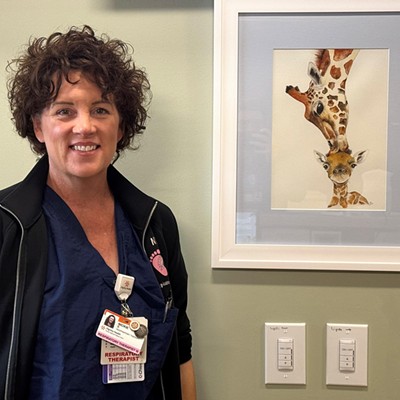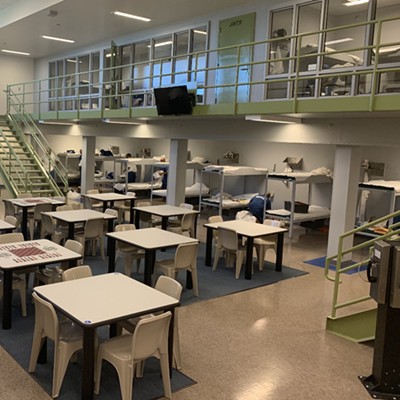The Ballard Elementary School District decided it will look into parents rights policies after outcry against the school’s procedures when a child came out as transgender.
The fourth grader gave her preferred name and pronouns to her peers with both parents present in the classroom earlier in 2023. During a special board meeting on March 22, Superintendent and Principal Pam Rennick said that fellow parents weren’t notified because of child privacy laws and the child’s parents—one of whom is board member Sean Conroy—were allowed in the classroom to protect the child in accordance with the law.

“It was a big announcement and my goals were to protect the child, but have it be a nonissue for the rest of the kids, and I feel like those goals were accomplished,” Rennick said.
The school had follow-up conversations with its legal counsel, which said that the school would have encroached on student privacy laws if it had proceeded differently, Rennick said. She added that the kids have been “awesome” and there haven’t been any issues but allowing students to ask the child’s parents questions after the announcement was a “sticking point” for many parents.
Parents and grandparents have poured in to the past three board meetings to advocate for a parents rights policy that would allow them to be notified of guest speakers and opt their students out of certain conversations a parent deems inappropriate for their child.
Parent Blair Storms told the board during the special meeting that her child was diagnosed with autism spectrum disorder, and she would opt out of the conversation if it were to happen in her son’s classroom so she could have the conversation with him when she felt it was appropriate.
“Is one child’s happiness worth more than a delayed child’s ability to comprehend this type of situation?” she asked. “Consider the impact of special needs children as to avoid potential litigation exposure. Parents have the duty to protect their children’s rights until they are old enough to make their own way in the world.”
She added that parents’ rights were stripped away when the two parents—specifically with one in a “position of power”—the principal, and the superintendent “barged” into a classroom without parent consent to convey a “controversial” message.
Fellow parent Rebecca Smith suggested that an ad-hoc committee form to look at modifying current parents rights policies, which haven’t been updated since 2010.
“The extreme lack of judgment shown in the fourth-grade classroom needs to be addressed and amendments need to be made in our policies,” Smith said. “Let’s foster a school that’s inclusive and respectful of all people and their ideas. These are our children, and as parents we deserve transparency.”
The school board voted later during the meeting to update all of its policies through the California School Boards Association and form an ad-hoc committee to specifically address parents rights at its next meeting, which is scheduled for April 19.
Although board President Tracey Cassidy agreed that policies needed to be revamped to meet current state laws, she said that the school district already has extensive parents rights policies in place already—allowing parents to opt out of sex education, HIV protection education, family life surveys, and state testing—and is worried that one moment in time will result in an overcorrection of policies.
“The impetus for this policy, based on conversation and based on previous meetings is rooted, I think, in bias, and there have been some unkind things said and some sentiments brought forth that are disheartening to me,” Cassidy said.
She added that no one can control the date, time, or manner a person decides to tell their peers information they wish to share, and that the parents do not “abdicate” their roles for their children, regardless of their positions at school.
“As I showed up earlier to support my daughter completing her DARE program, it is not inappropriate [for] a board member [to] show up to support their child,” Cassidy said. “There was no agenda put forth, there was the simplicity of a statement made and parents in place to support that statement at the knowledge of both the teacher and superintendent.”









